
The Anthomyiidae are a large and diverse family of Muscoidea flies. Most look rather like small houseflies. Most species are drab grey to black. Many Pegomya are yellow, and some members of the genera Anthomyia and Eutrichota are patterned in black-and-white or black-and-silvery-grey. Most are difficult to identify, apart from a few groups such as the kelp flies that are conspicuous on beaches.
Actia mimetica is a species of parasitic fly in the family Tachinidae.
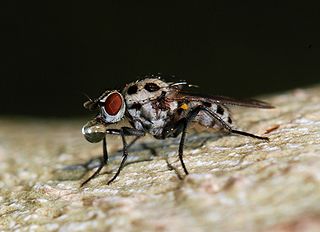
Anthomyia is a genus of flies in the family Anthomyiidae. They look rather like small houseflies, but commonly have conspicuous black-and-white patterning. This appears to be a mild form of aposematic coloration, though they do not appear to be distasteful unless they have eaten something offensive to the predator and have loaded their guts with it.

Sassia is a genus of sea snails, marine gastropod molluscs in the family Cymatiidae.

Bosellia mimetica is a species of sea slug, a marine gastropod mollusk in the family Plakobranchidae. It is a very small sea slug growing to less than 1 centimetre (0.4 in) in length. It has a rounded, flattened body and is a mottled green, a colour that mimics that of the algae Halimeda tuna and Flabellia petiolata on which it lives and feeds. Its range includes the Mediterranean Sea, the Iberian peninsula, the Caribbean Sea and the Atlantic coast of South America. The type locality is the island of Capri, in Italy.
Hypomyrina mimetica, the Libert's orange playboy, is a butterfly in the family Lycaenidae. It is found in Sierra Leone, Liberia, Ivory Coast, Ghana, Nigeria, Cameroon, the Republic of the Congo, the Central African Republic, the north-eastern part of the Democratic Republic of the Congo and possibly Uganda.

Cupidesthes mimetica, the black-spotted ciliate blue, is a butterfly in the family Lycaenidae. The species was first described by Hamilton Herbert Druce in 1910. It is found in Ivory Coast, Ghana, western Nigeria, Cameroon and the Republic of the Congo. The habitat consists of forests.
Anthomyia obscuripennis is a species of fly in the family Anthomyiidae. It is found in the United States.
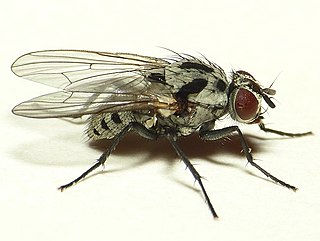
Anthomyia procellaris is a species of fly in the family Anthomyiidae.

Oxycopis is a genus of false blister beetles in the family Oedemeridae. There are about 17 described species in Oxycopis.
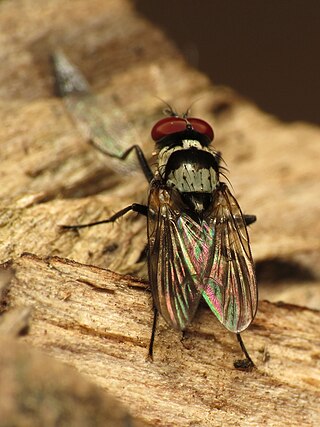
Anthomyia oculifera is a species of root-maggot fly in the family Anthomyiidae.
Anthomyia ochripes is a species of root-maggot fly in the family Anthomyiidae.
Micracisella is a genus of typical bark beetles in the family Curculionidae. There are at least 20 described species in Micracisella.
Tritoma mimetica is a species of pleasing fungus beetle in the family Erotylidae. It is found in North America.
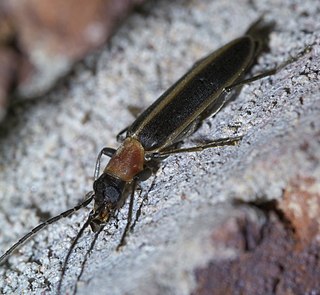
Oxycopis mimetica is a species of false blister beetle in the family Oedemeridae. It is found in North America.
Coquillettia mimetica is a species of plant bug in the family Miridae. It is found in North America.
Coquillettia is a genus of plant bugs in the family Miridae. There are more than 30 described species in Coquillettia.

Sigmoria is a genus of flat-backed millipedes in the family Xystodesmidae. There are more than 40 described species in Sigmoria.
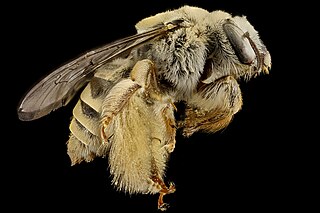
Diadasia rinconis is a species of chimney bee in the family Apidae. It is found in Central America and North America. In the Sonoran Desert, D. rinconis is considered the "cactus bee" as it feeds almost exclusively on a number of Sonoran Desert cactus species, its life cycle revolving around the flowering of the native species of cacti.

Gibberula mimetica is a species of sea snail, a marine gastropod mollusk, in the family Cystiscidae.










